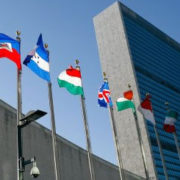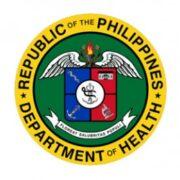AS the Philippines continues to distance itself from other countries that criticize its controversial war on drugs, it has been named among 48 countries that have a rising rate of reprisals against human rights groups and advocates that cooperate with the United Nations.
According to the UN Human Rights Office, it has been receiving more information on incidences of intimidation and reprisals against victims, members of civil society and activists, reflecting a rise in cases globally.
The cases range from activists suffering detention and prison sentences, to acts of intimidation such as filming participants in meetings without their consent.
“We also have some severe cases of authorities threatening and harassing family members of activists,” said UN Assistant Secretary-General for Human Rights Andrew Gilmour on Thursday, September 19.
He added, “Some governments seem prepared to go to almost any lengths to punish people who cooperate with us. This may actually underscore the justice of the victims’ causes.”
The report, presented Thursday to the Human Rights Council in Geneva, detailed the cases in the Philippines as well as other countries. Philippine Senator Leila De Lima’s detention was cited as one of the cases.
“Regarding the former Chair of the Commission, Ms. Leila M. de Lima, on 24 August 2018 the Working Group on Arbitrary Detention adopted an opinion which highlights, among other things, that the detention is deemed arbitrary and recommends that Ms. De Lima be released immediately, afforded compensation and that her detention be investigated. Ms. de Lima has been in prison since February 2018 on allegations of drug-related charges, deemed ‘politically motivated’ by several special procedures mandate holders,” the report read.
Another one was the complaint filed by Karapatan, a national human rights organization, before the Commission on Human Rights (CHR) with regard to the red-tagging and terrorist-labelling of rights groups.
“In April 2019, Karapatan members reportedly were subjected to continued threats, harassment and intimidation against them and their partners. They noted in particular the ‘red-tagging,’ which attempted to discredit the reports Karapatan sends to the UN as a basis for smear and vilification campaigns, and the terrorist-labelling of organizations in line with the Government’s counterinsurgency program,” the report said.
Other countries included in the report are Algeria, Bahamas, Bahrain, Bangladesh, Benin, Bolivia, Burundi, Cameroon, China, Colombia, Cuba, Djibouti, Democratic Republic of Congo, Egypt, Eritrea, Ethiopia, Guatemala, Honduras, Hungary, India, Iran, Iraq, Israel, Kazakhstan, Kyrgyzstan, Malaysia, Mali, Malta, Mauritania, Mexico, Morocco, Myanmar, Nicaragua, Poland, Russian Federation, Saudi Arabia, South Sudan, Sri Lanka, State of Palestine, Thailand, Tunisia, Turkmenistan, United Arab Emirates, Uzbekistan, Venezuela, Vietnam and Yemen.







